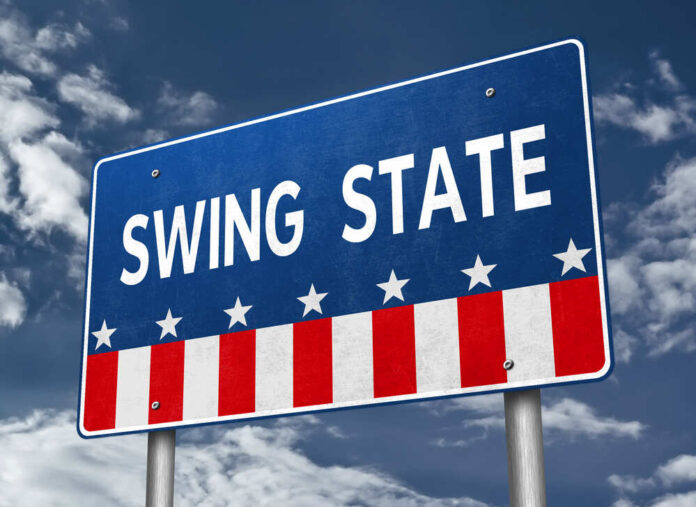
Recent election data indicates a noticeable decrease in Democratic voter registration in three critical battleground states—Pennsylvania, North Carolina, and Nevada—since late 2020, highlighting potential challenges for the party ahead of a potential 2024 rematch between Trump and Biden.
Official state statistics reveal that Pennsylvania has seen a significant reduction in registered Democrats, with 336,269 fewer since November 2020. This shift has reduced the Democrats’ advantage over Republicans from 685,818 to just under 400,000 registered voters.
In North Carolina, 212,084 Democrats have left the party since December 2020, significantly narrowing the registration gap. The difference between the Republican Party and Democrats has decreased to 170,943 from 373,622 previously.
Nevada also shows a decline, with 27,757 fewer registered Democrats since December 2020, shrinking their lead over Republicans to 55,116, down from 96,875 in 2020.
These declines are particularly concerning for Democrats in historically strongholds like Philadelphia County, Pennsylvania, where a decrease in voter participation could impact the party’s base and potentially hurt Biden’s prospects in 2024.
The data also reflects broader trends seen across other states like Kentucky, where the percentage of registered Democrats has fallen below 50% for the first time since 1984 when Mitch McConnell was first elected to the Senate and Democrats held the majority in the state’s congressional delegation.
The tightness of the past presidential races in these states underscores the significance of these shifts. In the last election, Trump won North Carolina by a 1.3-point margin, while Biden secured Nevada and Pennsylvania by 2.4 and 1.2 points, respectively.
Current polls from RealClearPolitics show Trump holding a 4.6-point lead in North Carolina and a 3.2-point advantage in Nevada, while Biden maintains a slight edge in Pennsylvania with a margin of just 0.1 percentage points. These figures suggest shifting political landscapes in these key states as both parties prepare for the upcoming election.














